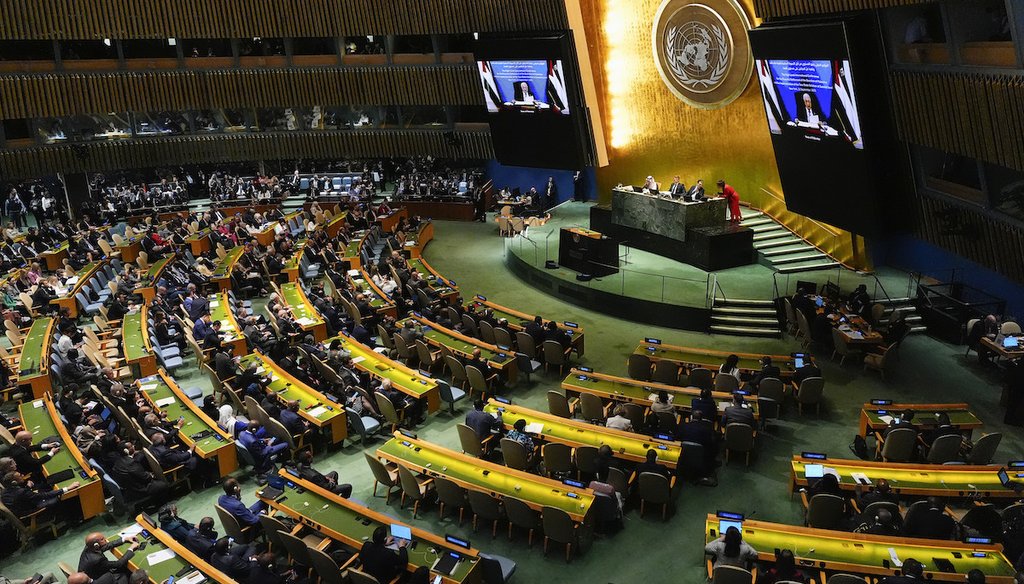President Donald Trump is set to address the United Nations General Assembly on Sept. 23, two days after key allies recognized a Palestinian state, despite U.S. and Israel opposition. PolitiFact will fact-check the speech on our liveblog, found below.
The U.N. General Assembly is the global organization’s main policy-making body. Each of the 193 U.N. member states gets an equal vote as the assembly completes tasks such as approving the U.N.’s budget and appointing the secretary general.
This meeting of world leaders marks the U.N.’s 80th anniversary. The milestone comes as members are at odds.
In the first months of his second term, Trump has continued his longstanding criticism of the U.N. He didn’t pay member dues, ordered a review of U.N. funding and pulled the U.S. out of the World Health Organization, the Human Rights Council and United Nations Educational, Scientific and Cultural Organization or UNESCO.
On Sept. 21, American allies including Australia, Canada and the United Kingdom joined a majority of countries in formally recognizing a Palestinian state. It’s largely symbolic and not expected to immediately change the outlook on the ground. State recognition allows for diplomatic relations such as treaties and ambassadorships. On Sept. 22, France and Saudi Arabia held a conference to rally support for a two-state solution to the Israel-Hamas war. A two-state solution is supported by 142 of 193 U.N. member states.
Sign up for PolitiFact texts
Citing national security concerns, Trump’s State Department denied visas to the Palestinian delegation, meaning Palestinian leaders including Mahmoud Abbas will be unable to attend the meeting at the U.N. headquarters in New York City.
The visa denial is part of a wider underlying dispute with the United Nations: It may violate a 1947 U.S.-U.N. agreement that became federal law. It says, in part, “The federal, state or local authorities of the United States shall not impose any impediments to transit to or from the headquarters district.” However, when the agreement became law, U.S. lawmakers also passed legislation saying the agreement couldn’t prohibit the U.S. from safeguarding its national security.
The Russia-Ukraine war is another source of international concern. Despite Trump’s pledge to end the war immediately after his inauguration, the war is ongoing. The U.S. repeatedly sided with Russia in U.N. votes, including opposing a resolution condemning Moscow’s actions and supporting Ukraine’s territorial integrity. The 15-member U.N. Security Council has been deadlocked and unable to act during the Russia-Ukraine war because Russia holds a veto. The U.N. Security Council planned to hold an emergency meeting Sept. 22 to discuss Russia’s violation of Estonian airspace, which came on the heels of Russia violating Poland’s airspace earlier this month.
Trump has addressed the U.N. before. During his first term, Trump rejected “globalism” in favor of his “America First” ideology, while encouraging international cooperation in some areas of shared interest.

